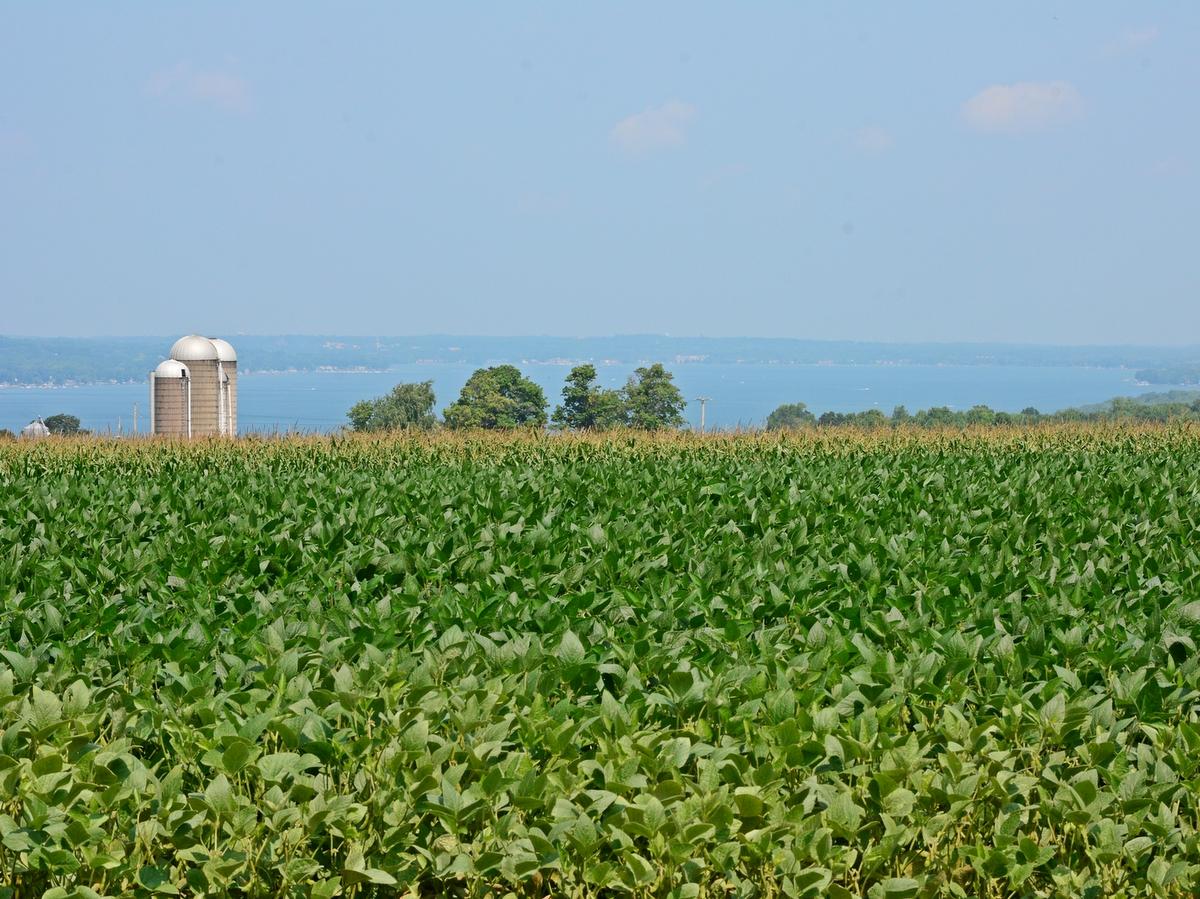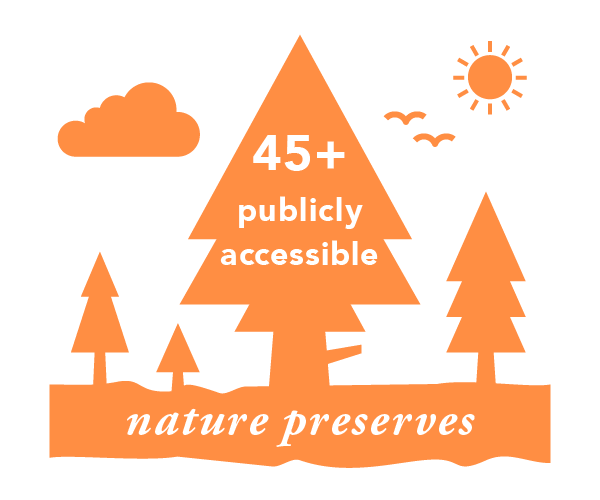The Land Trust and the Town of Gorham announced the permanent protection of 50 acres of prime farmland in the Canandaigua Lake watershed through the use of a perpetual conservation easement. The property, previously owned by Joe Christofferson, overlooks Canandaigua Lake and provides the public with scenic views from Twitchell Road.
The Land Trust and the town formed a partnership to conserve the property which will remain in agricultural use. The town provided over $85,000 in funding for the project, and the Land Trust agreed to hold the easement and monitor future compliance with the agreement.
The Town of Gorham is committed to conserving farmland and scenic vistas. They have codified this commitment through a Farmland, Open Space, and Resource Conservation Plan, as well as zoning ordinances that limit subdivision and development in high priority open space areas.
“The Town of Gorham has been trying to protect the water quality of Canandaigua Lake, open space, and active farmland throughout the town for many years now,” said Town Supervisor Fred Lightfoote. “This project accomplishes all three of these goals which are very important to the new and former owners of the property. They are to be commended. My hat is off to all who worked on this project, as well as the many past and present members of various town boards whose vision, determination, and persistence placed the town in a position to help bring the project to fruition.”
“The Land Trust is grateful for the town’s commitment to conserving open space,” said Land Trust Executive Director Andrew Zepp “Without their leadership, this project would not have been possible.”
This is the second project which the Land Trust and the Town of Gorham have partnered on. They previously worked together with New York State to protect 95 acres of forest on the northern slope of Bare Hill.
Conservation easements are legal agreements that limit future development while allowing land to remain in private ownership and on the tax rolls. Landowners who donate conservation easements may be eligible for both state and federal tax benefits.


